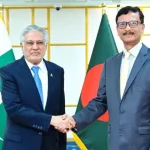According to several research studies on economic empowerment, raising women’s employment to their male counterparts can have a direct impact on the GDP growth rates, increasing them by as much as 34% in some countries. This can also increase country’s productivity by 25% if discriminatory barriers against women are removed. Shaoor Foundation for Education and Awareness (SFEA) strongly believes that equal social and economic opportunities for women are vital for the country’s progress. And this can be done by creating more spaces for women and building/enhancing their entrepreneurial capacities.
Women Can Do (WCD) is one such initiative of SFEA that does not only reach out to the women in public women universities and religious seminaries with entrepreneurial training but also provides them more opportunities such as advanced mentorship, virtual incubation, and seed grants to practically convert their ideas into products. Owing to its significance, SFEA has made Women Can Do its permanent wing for women economic empowerment initiatives.
WCD-II is a training, capacity enhancement and linkages development project focused on 12 public women universities and 6 religious seminaries, by establishing low cost, self-sustaining, efficient “On campus” virtual incubators for aspiring women entrepreneurs using existing infrastructure and staff Via “on campus” trainings of administrating staff, development of linkages between stakeholders. It provides initial training, mentorship and way forward to 5,000 direct female beneficiaries across 14 project districts and prepare a pool of 50 women entrepreneurs as role models and change agents for the project institutions/districts by converting their ideas into the actual market product via advance incubation, seed grants, and angel investors. By the end of the project, 18 virtual incubators would be established at 12 public women universities and 6 large scale religious seminaries and would be run by master trainers and change agents/role models. 50 Success Stories from public women universities would be published at project social media pages and website and shared with the US Embassy and larger audience. More than 36 Universities, seminaries, and stakeholder would be mutually connected and 50 US entrepreneurs shall be working with women entrepreneurs from Pakistan’s public universities for the first time. The project would reach to more than 5000 direct beneficiaries.








